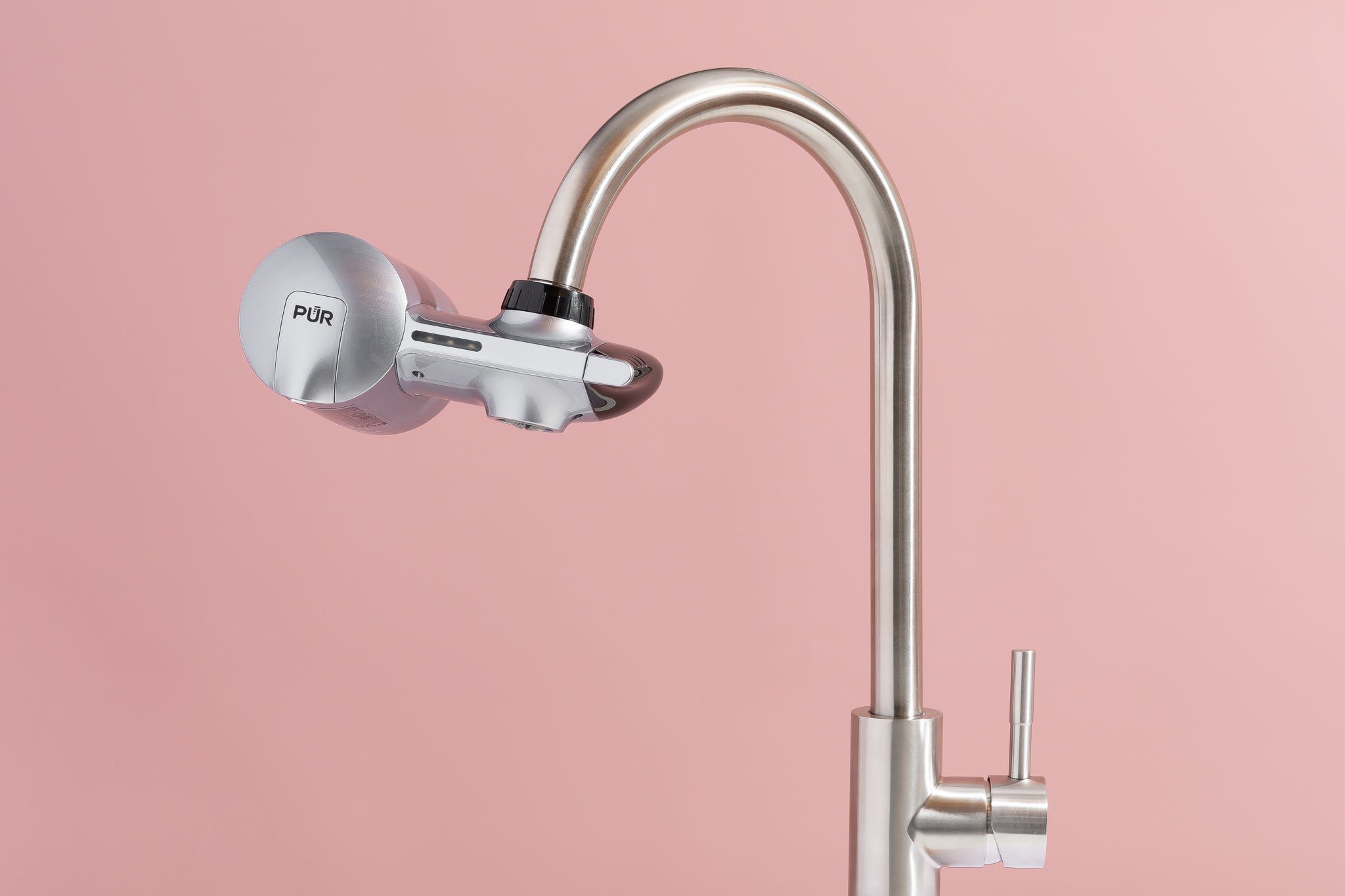In today’s article, we will explore the various methods available to filter tap water and determine the healthiest option. Clean and safe drinking water is essential for our well-being, but with the wide range of filter choices out there, it can be hard to decide which one is best. So, let’s navigate through the world of water filtration systems and find the most effective and healthy way to ensure that every sip we take is pure and refreshing.
The Importance of Filtering Tap Water
Tap water is a convenient and easily accessible source of hydration. However, it is essential to filter it before consumption to ensure that it is free from contaminants. Filtering tap water offers numerous benefits, including removing contaminants, improving taste and odor, and protecting against microorganisms.
Removing Contaminants
One of the primary reasons for filtering tap water is to remove harmful contaminants that may be present. Tap water can contain various pollutants, such as heavy metals, pesticides, chlorine, and volatile organic compounds (VOCs). These contaminants can have detrimental effects on your health, ranging from gastrointestinal problems to long-term illnesses.
By using a water filter, you can effectively remove these impurities, providing you with safer and cleaner drinking water. It gives you peace of mind knowing that you and your family are not consuming harmful substances that could potentially have adverse health effects.
Improving Taste and Odor
In addition to removing contaminants, filtering tap water can also significantly improve its taste and odor. Tap water often has a noticeable chlorine taste and unpleasant odor due to the disinfection process carried out by water treatment plants. While chlorine is necessary to kill bacteria and viruses, it can leave a residual taste and smell that is off-putting.
A high-quality water filter, such as an activated carbon filter, can eliminate the chlorine and other chemicals responsible for these unpleasant characteristics. As a result, filtered tap water tastes better, making it more enjoyable to drink. It can also enhance the flavor of beverages made with filtered water, such as coffee, tea, and fruit-infused drinks.
Protecting Against Microorganisms
Microorganisms, including bacteria, viruses, and parasites, can find their way into tap water sources through various means. These microorganisms can pose serious health risks, especially to individuals with weakened immune systems, children, and the elderly. Drinking water contaminated with these pathogens can lead to gastrointestinal infections and other waterborne illnesses.
Filtering tap water using certain types of filters, such as ceramic filters and UV filters, can effectively remove and inactivate these microorganisms. Ceramic filters have microscopic pores that prevent bacteria and parasites from passing through, ensuring that the water is free from harmful pathogens. Similarly, UV filters use ultraviolet light to kill microorganisms, ensuring the safety of the filtered water. These filtration methods provide an additional layer of protection against waterborne diseases.
Different Types of Water Filters
When it comes to filtering tap water, there are several types of water filters available on the market. Each filter has its own unique features and mechanisms to remove contaminants and provide clean drinking water. Some of the most common types of water filters include activated carbon filters, reverse osmosis filters, ceramic filters, ion exchange filters, and UV filters.
Activated Carbon Filters
Activated carbon filters are perhaps the most common and widely used type of water filters. These filters are effective in removing chlorine, volatile organic compounds (VOCs), and other chemicals that cause taste and odor issues. Activated carbon works by adsorbing contaminants to its porous surface, trapping them before the water passes through.
This type of filter is also capable of reducing heavy metals, such as lead, mercury, and copper, as well as certain pesticides. However, it may not be as effective in removing dissolved minerals or inorganic compounds from the water. Activated carbon filters are generally affordable and easy to install, making them a popular choice for many households.
Reverse Osmosis Filters
Reverse osmosis (RO) filters use a complex process to remove a wide range of contaminants from water. These filters operate by pushing water through a semi-permeable membrane, effectively trapping impurities and allowing only purified water to pass through.
RO filters are highly effective in removing dissolved minerals, heavy metals, bacteria, viruses, and other pollutants. They can significantly improve the quality and taste of tap water, making it safe for consumption. However, it is important to note that reverse osmosis filters can also remove beneficial minerals from water, which may need to be supplemented through other means.
Ceramic Filters
Ceramic filters are another popular choice for filtering tap water. These filters consist of a ceramic cartridge that contains small pores or channels. These pores are small enough to trap bacteria, cysts, and sediments, ensuring that the filtered water is free from these contaminants.
Ceramic filters are effective in removing harmful microorganisms and solids from the water, but they may not be suitable for removing dissolved chemicals. However, they are generally long-lasting and require minimal maintenance. Regular cleaning and occasional scrubbing may be necessary to prevent clogging and ensure optimal filtration.
Ion Exchange Filters
Ion exchange filters use a specialized resin that removes dissolved ions from water through a process called ion exchange. These filters are particularly effective in removing minerals, such as calcium and magnesium, which are responsible for water hardness.
Ion exchange filters can help improve the taste and texture of tap water by reducing scaling and preventing mineral buildup in appliances and pipes. However, they may not be as effective in removing other contaminants or impurities. It is important to consider the specific water quality issues you are facing before choosing an ion exchange filter.
UV Filters
UV filters or ultraviolet disinfection systems use UV light to inactivate microorganisms, including bacteria, viruses, and parasites. These filters are commonly used in combination with other filtration methods to provide a comprehensive approach to water purification.
UV filters do not remove particulates or dissolved contaminants from water, but they are highly effective in destroying harmful microorganisms. The UV light damages the genetic material of these pathogens, rendering them unable to reproduce or cause infection. UV filters are often used as the final stage in a multi-stage filtration system to ensure microbiological safety.
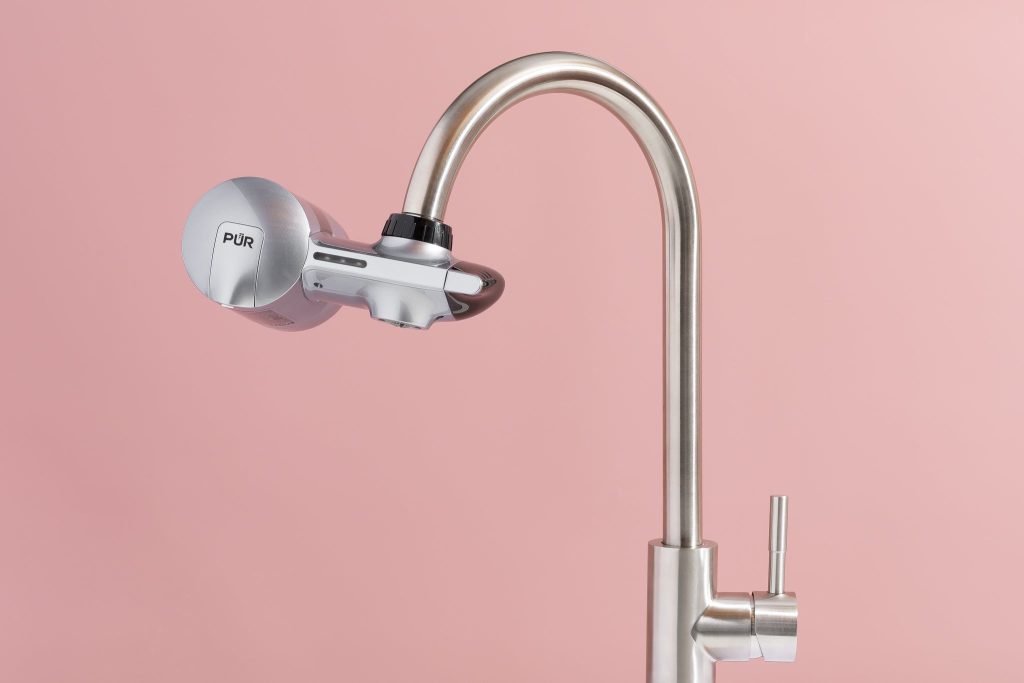

This image is property of cdn.thewirecutter.com.
Factors to Consider When Choosing a Water Filter
Choosing the right water filter for your needs can be a daunting task, considering the many options available. Several factors should be taken into consideration to ensure that you select a filter that meets your specific requirements. These factors include the contaminants in your water, your budget, maintenance needs, and water usage.
Contaminants in Your Water
The first step in choosing a water filter is to identify the specific contaminants that are present in your tap water. Conducting a water quality test or obtaining a copy of your municipal water report can provide valuable insights regarding the impurities that need to be eliminated. Different filters are designed to target specific contaminants, so knowing what you are dealing with is essential in finding the most suitable filter.
For example, if your water contains high levels of chlorine and undesirable odor, an activated carbon filter would be ideal. On the other hand, if you are concerned about dissolved minerals or heavy metals, a reverse osmosis filter may be more appropriate. Understanding your water’s composition will help you make an informed decision regarding the type of filter that will address your specific needs.
Budget
Another important consideration is your budget for purchasing and maintaining a water filter. The cost of water filters can vary greatly depending on the type and brand. Some filters may require regular replacement cartridges, which can add to the overall cost over time. It is essential to determine your budget and explore options that provide the best value for money without compromising the filter’s effectiveness.
While it may be tempting to choose a cheaper option, it is important to prioritize the quality and effectiveness of the filter. Investing in a high-quality filter may have a higher initial cost, but it can save you money in the long run by providing long-lasting performance and reducing the need for frequent replacements.
Maintenance
Consider the maintenance requirements of the water filter before making a purchase. Some filters may require more frequent cleaning or cartridge replacements, while others may need professional servicing. It is crucial to assess your willingness and ability to perform regular maintenance tasks to ensure that the filter continues to function optimally.
Ceramic filters, for example, require periodic cleaning to prevent clogging and maintain their efficiency. On the other hand, reverse osmosis filters typically require cartridge replacement every six to twelve months. Understanding the maintenance needs of different filters will help you choose one that aligns with your lifestyle and preferences.
Water Usage
Take into account your household’s water usage when selecting a water filter. Consider factors such as the number of people living in your home, the average daily water consumption, and your specific water needs. Filters come in various sizes and flow rates, so it is essential to choose one that can handle your daily water demands.
If you have a large household with high water consumption, you may require a filter with a higher flow rate to ensure an adequate supply of filtered water. However, if you have a small household or limited water consumption, a smaller filter may be more appropriate.
The Effectiveness of Different Water Filters
Different water filters vary in their effectiveness in removing specific contaminants. Understanding the strengths and limitations of each type of filter will help you make an informed decision based on your specific needs. Here is a closer look at the effectiveness of some common types of water filters:
Activated Carbon Filters
Activated carbon filters excel in removing chlorine, VOCs, and chemicals that cause taste and odor issues. They are also effective in reducing certain pesticides and heavy metals. However, they may not effectively remove dissolved minerals or inorganic compounds from the water.
Reverse Osmosis Filters
Reverse osmosis filters are highly effective in removing dissolved minerals, heavy metals, bacteria, viruses, and other pollutants. They can significantly enhance water quality and taste. However, they may also remove beneficial minerals from the water, which may need to be supplemented through dietary means.
Ceramic Filters
Ceramic filters are adept at removing harmful microorganisms and solids from the water. They are particularly effective in eliminating bacteria and parasites. However, they may not be suitable for removing dissolved chemicals or minerals.
Ion Exchange Filters
Ion exchange filters are effective in reducing water hardness caused by minerals like calcium and magnesium. They can enhance the taste and texture of tap water by preventing scaling and mineral buildup. Nevertheless, they may not be as effective in removing other contaminants.
UV Filters
UV filters are highly effective in inactivating microorganisms, including bacteria, viruses, and parasites. They provide an additional layer of protection against waterborne diseases. However, UV filters do not remove particulates or dissolved contaminants from the water.
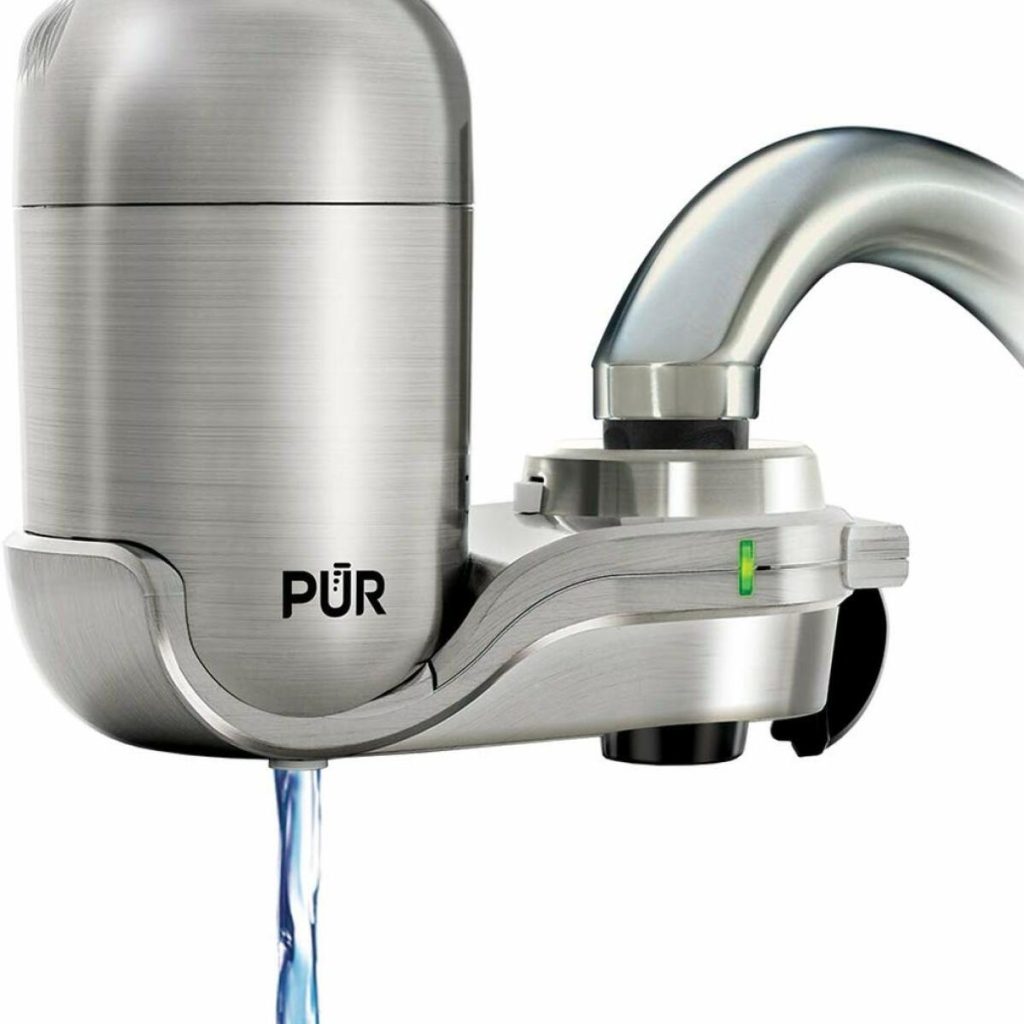

This image is property of helios-i.mashable.com.
Potential Drawbacks of Water Filters
While water filters offer numerous benefits, they also come with some potential drawbacks that need to be considered. Understanding these limitations will help you make an informed decision and set realistic expectations. Here are some drawbacks that you may encounter when using water filters:
Reduced Minerals
Certain water filters, such as reverse osmosis filters, may remove beneficial minerals from the water along with the contaminants. While this is not necessarily harmful to your health, it may be a concern if you rely on your drinking water as a source of essential minerals. In such cases, you may need to supplement your diet with mineral-rich foods or consider using alternative filters that do not remove minerals.
Slow Filtration Process
Some water filters, particularly those with more complex filtration mechanisms like reverse osmosis, may have a slower filtration process. It can take longer to fill a glass or container compared to using unfiltered tap water. The slower filtration rate may be a minor inconvenience, especially if you require larger quantities of filtered water at once.
High Initial Cost
Certain types of water filters, such as reverse osmosis filters, may have a higher initial cost compared to other options. The advanced technology and multiple filtration stages contribute to the higher price tag. However, it is essential to consider the long-term benefits and potential cost savings in terms of improved water quality and reduced bottled water expenses.
Disposal of Filter Cartridges
Many water filters require periodic replacement of filter cartridges or other parts. Disposing of these used cartridges can be an environmental concern. It is crucial to check if the manufacturer offers recycling programs or alternative disposal methods to minimize the impact on the environment.
Combining Different Water Filtration Methods
For those seeking an extra level of water purification, combining different filtration methods can provide enhanced results. By using multiple filters in sequence, you can address various contaminants and ensure that your tap water is at its purest. Here are some common combinations of water filtration methods:
Activated Carbon + Reverse Osmosis
Combining activated carbon and reverse osmosis filters provides a comprehensive approach to water filtration. The activated carbon filter removes chemicals, chlorine, taste, and odor issues, while the reverse osmosis filter effectively removes dissolved minerals, heavy metals, and other contaminants. This combination delivers both improved taste and enhanced overall water quality.
Activated Carbon + Ceramic
Pairing activated carbon and ceramic filters is an effective way to remove a wide range of impurities. The activated carbon filter eliminates chemicals and unwanted tastes and odors, while the ceramic filter traps bacteria, parasites, and sediments. This combination ensures that your water is clear, safe, and free from unpleasant characteristics.
Activated Carbon + Ion Exchange
By combining activated carbon and ion exchange filters, you can address both taste and water hardness issues. The activated carbon filter removes chlorine and enhances the taste, while the ion exchange filter reduces water hardness caused by minerals. This combination can significantly improve the flavor and texture of tap water.
Reverse Osmosis + UV
Pairing reverse osmosis and UV filters ensures comprehensive water purification. Reverse osmosis removes dissolved minerals, heavy metals, and other contaminants, while the UV filter inactivates microorganisms. The combination of these two filters provides high-quality, microbiologically safe drinking water.
Ceramic + UV
Combining ceramic and UV filters is an effective way to eliminate harmful microorganisms and solids from tap water. The ceramic filter traps bacteria, parasites, and sediments, while the UV filter inactivates remaining microorganisms. This combination offers excellent protection against waterborne diseases.
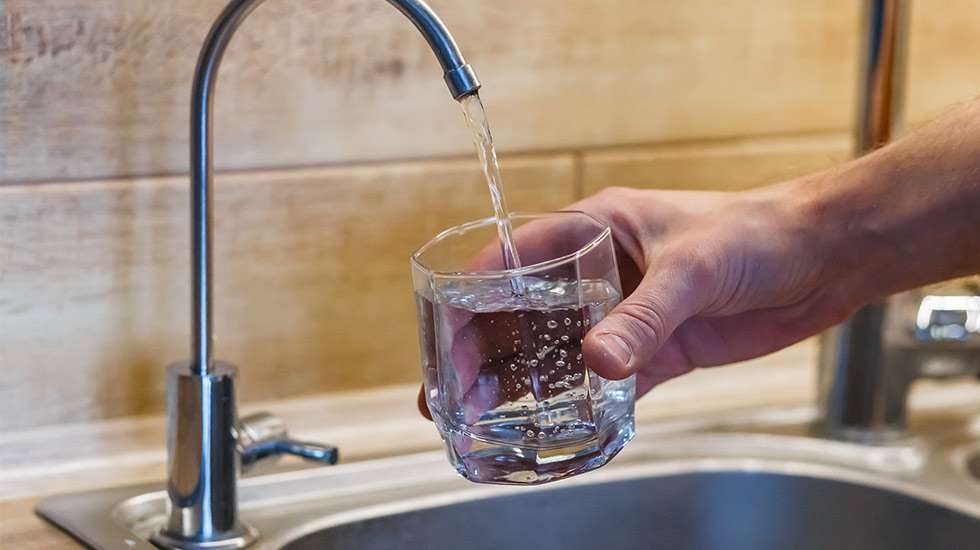

This image is property of assets-global.website-files.com.
Maintenance and Replacement of Water Filters
Regular maintenance and timely replacement of filter cartridges are vital to ensure that your water filter continues to perform effectively. Proper care and servicing contribute to the longevity and optimal function of the filter. Here are some essential maintenance practices to keep in mind:
Regular Cleaning
Some filters, such as ceramic filters, require periodic cleaning to prevent clogging and maintain their efficiency. Cleaning guidelines may vary depending on the specific filter, so it is important to follow the manufacturer’s instructions. Regular cleaning ensures that the filter remains effective in removing contaminants and delivering clean water.
Replacing Filter Cartridges
Many water filters have replaceable filter cartridges that require periodic replacement. The frequency of cartridge replacement depends on the specific filter and the water quality in your area. It is important to monitor the recommended replacement schedule and replace the cartridges accordingly. Failing to do so may result in reduced filtration efficiency and compromised water quality.
Professional Servicing
For some complex water filtration systems, professional servicing may be necessary. These systems often have multiple filtration stages and intricate components that require expertise for maintenance and repairs. Regular servicing by a qualified professional ensures that the system operates optimally and minimizes the risk of malfunctions.
Tips for Safe Tap Water Consumption
While filtering tap water is essential for ensuring its safety and quality, here are some additional tips to further enhance your tap water consumption experience:
Flush the Taps
Before using tap water for drinking or cooking, it is advisable to flush the taps for a few minutes. This helps remove stagnant water that may have been sitting in the plumbing system and can contain higher concentrations of impurities. Flushing the taps ensures that you are consuming fresh, filtered water.
Use Cold Water
When drinking tap water, it is recommended to use cold water instead of warm or hot water. Cold water generally has a lower concentration of metals, such as lead or copper, which may leach from plumbing systems when water is heated. Using cold water reduces the risk of metal contamination.
Boiling Water
Boiling tap water is an effective method to kill most types of microorganisms and make it safe for consumption. Boiling water for one minute (or three minutes at higher altitudes) is sufficient to eliminate harmful bacteria, viruses, and parasites. However, boiling does not remove impurities or chemicals, so filtering the water beforehand is still recommended for optimal quality.
Regularly Clean Appliances
Appliances that come into contact with tap water, such as water dispensers, coffee makers, and kettles, should be regularly cleaned to prevent the buildup of minerals and other residues. Following the manufacturer’s cleaning instructions helps maintain the cleanliness and performance of these appliances, ensuring that you are consuming clean, filtered water.
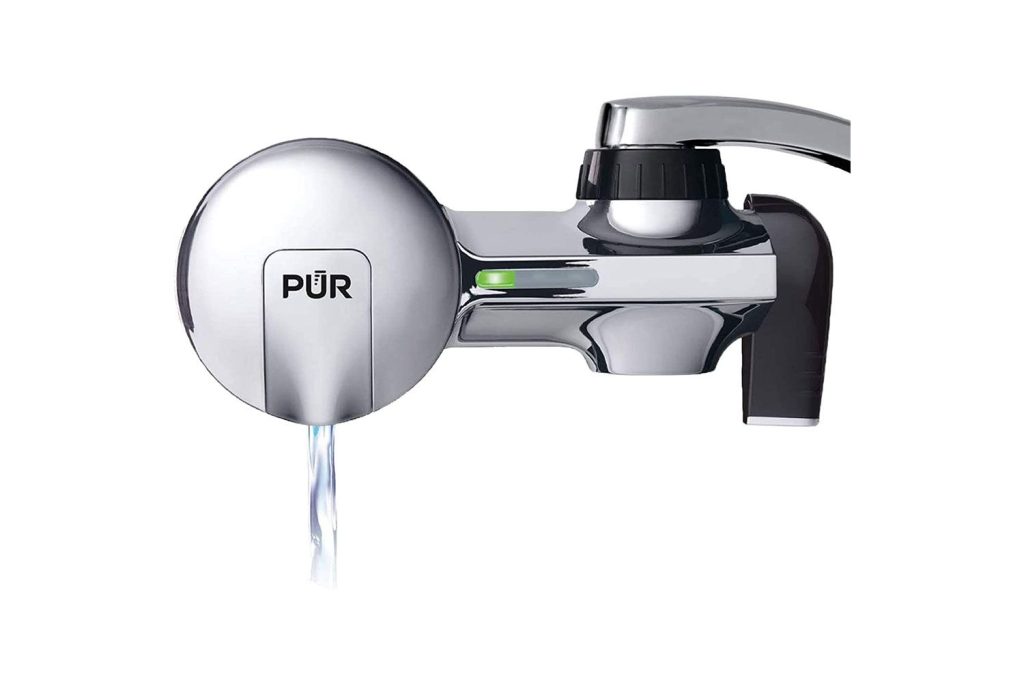

This image is property of www.thespruceeats.com.
Conclusion
Filtering tap water is of utmost importance to ensure that it is safe, clean, and free from contaminants. With various types of water filters available, it is crucial to choose one that meets your specific needs and effectively removes the impurities present in your tap water.
Consider factors like the contaminants in your water, your budget, maintenance requirements, and water usage before making a decision. By choosing the right water filter and following the necessary maintenance practices, you can enjoy the benefits of clean and refreshing tap water. Remember to also incorporate additional safe tap water consumption tips to further enhance your drinking water experience. Stay hydrated and prioritize your health by filtering your tap water effectively.

